Munich: Balanced between Past and Present
Posted: December 10th, 2014 | Author: ctbideas | Filed under: ATW Updates | No Comments »After Italy, we embarked on this large roundabout path through the rest of Europe, with Munich as our first stop. When Rick asked his German coworkers which city in Germany to visit, the consensus was always Munich, so we knew we had experience the home of Oktoberfest. Unfortunately (or fortunately for our finances), we couldn’t wait until then. Instead, we arrived just in time to take part in Mardi Grad celebrations.
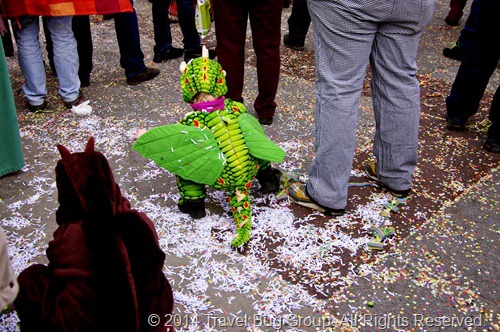
And let me tell you, Germans know how to throw a party. Music, costumes, revelers, meat, dancing, and lots of beer. I had never seen so many people dressed up and casually hanging out in the streets. It was like I imagined a comic convention or LARPing retreat to feel like. Except it wasn’t a subset of Munich society. It was everyone! So much fun.
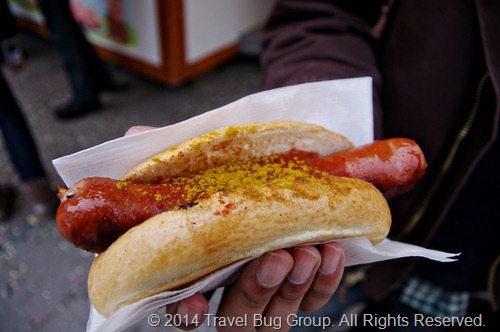
Ah, the famous currywurst=sausage+bread roll+ketchup+generous sprinkling of curry powder. Be sure that when you order a sausage, that it comes with a brot (bread) or brotchen (bread roll). Our first meal in Munich consisted of a sausage in a bag (not kidding…) because we didn’t know otherwise.
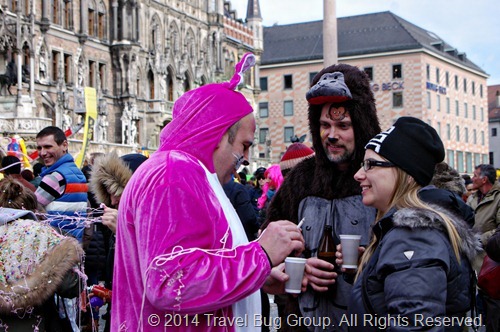
Everyone we met was super-nice, albeit reluctant to speak English to us. It’s surprising how hard it is to communicate, considering English is supposed to be a Germanic-based language. In fact, it was easier to puzzle out Italian than German. Regardless, there’s a certain vibrancy running as a thread through the city. It’s fun to just walk around, soaking it up.
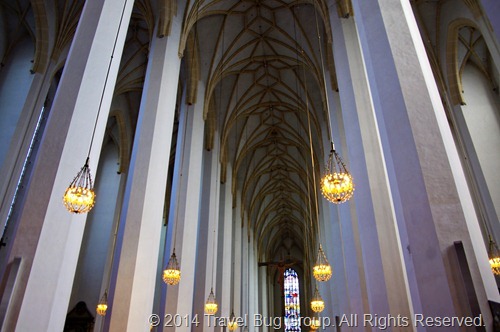
Munich’s Frauenkirche holds the dual distinction of being the pulpit Pope Benedict presided over before his papal ascension and containing an interesting “imprint” of the devil’s footprint. Two things you may not know, however, is it also contains a shriveled human arm and a small Jewish star in the rafters. All are interesting stories that bear looking into in greater detail.
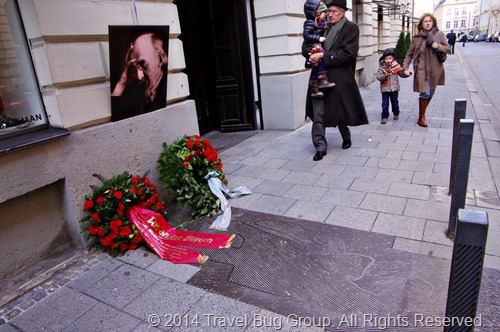
Munich has the unfortunate distinction of being the birthplace of the Nazi party (in the famous Haufbrauhaus, get a 1-Liter pint if you visit), the city that Hitler loved most. It’s the site of the Beer Hall Putsch which resulted in Hitler’s incarceration and his eventual publication of “Mein Kampf”.
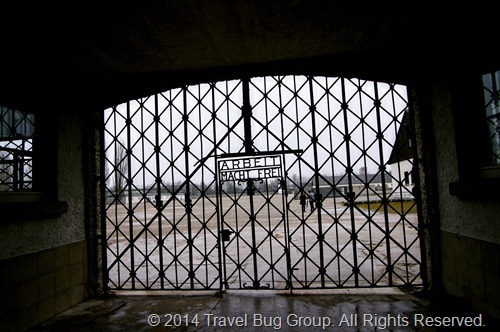
Not far from the main city of Munich is the Dachau concentration camp. One of the earliest and longest-running camps, it’s now been transformed into a museum meant to teach others of what could go horribly wrong if we let it. Its offices are now used to train police. And there are places of worship built off to the side: a synagogue, a Catholic church, an Orthodox church, a Protestant Church, and others. We walked by the replicas of wooden bunks, the gas chambers, and the ovens in which bodies were cremated, but nothing bothered me more than walking down a hallway of private cells. A shiver worked its way down my spine, memory-impressions pressing shadow-fingers into my skin.
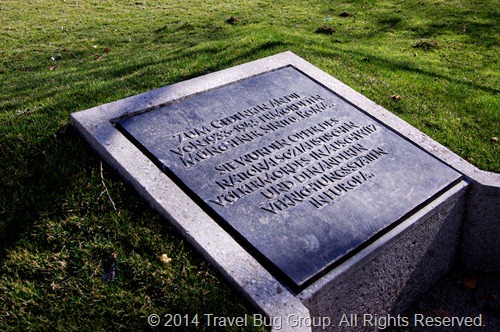
There is a plaque inside city hall, a small one, regarding the horrors of the Holocaust. It isn’t because they’re ashamed. No, it’s placed in a main corridor of city hall, where the employees that determine the laws and regulations of the city must walk by each day. It’s a reminder to the people for which it matters the most. Outside, running along the street, there is a simple golden line weaving its way along a quiet road. It marks the quiet resistance of those who chose to defy the Nazi regime in their daily lives, in which a simple act of walking down a side-street to avoid having to do the Nazi salute could mean your name written down and your eventual disappearance one night.
Like the one above, one of the few commemorating the sufferings of the Gypsies, who suffered great losses in the Holocaust but are little remembered in the same way as the Jewish people, most of the memorials in the city are understated, simple reminders that people walk by each day.
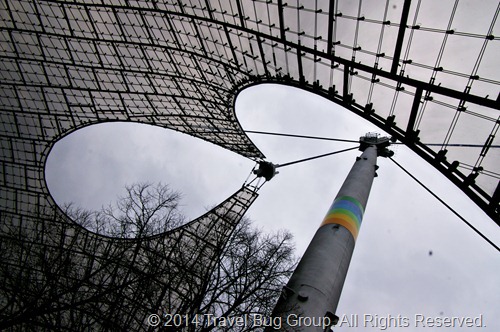
And in Munich, sometimes their greatest triumphs becomes coupled with great tragedy. The 1972 Munich Olympics, meant to present a democratic Germany to the world after the 1936 Berlin Games conducted under the Nazi Germany regime, has become overshadowed by the Munich Massacre in which 17 people died. The facilities are still in use to this day, but it’s become outdated and run-down, while still maintaining the beautiful swooping bare-bones of its yesteryears.
There’s a memorial to the hostages who died, but it’s as understated as the other Munich memorials. Still, it allows those who choose, to spend a quiet moment in contemplation.
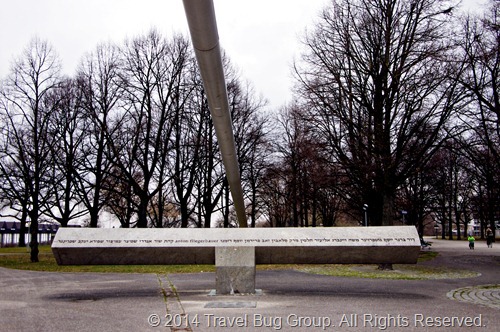
One of our tour guides once told us that the citizens of Munich are more proud to be Bavarian rather than German. While they were Bavarian, they enjoyed a glorious and lengthy history. However, in the short time that Germany has been unified, they’ve lost two world wars and suffered under the communist regime.
A few older folk walked by our tour group, while our tour guide enumerated the history of Nazi Germany. I looked at them and wondered what they thought. These people lived through the strife and aftermath, and now, even after all these years, they have to hear about this tragic period of their lives over and over again. It’s different than being a U.S. veteran from WWII, who can recount with patriotic fervor how they pushed back the tide of fascism and communism, how they won in the end. At the end of most WWII films, we see the American flag waving proudly, the cheering crowd with their liberators. What do Germans think when they watch these Hollywood films or see hordes of tourist peering into the beer hall where Hitler founded the Nazi party? Maybe it’s just as brave to have lost but never stop trying to live a good life, to keep living and raising your family, to overcome and to persist and to endure.
What I love about Munich is its spirit. It is destroyed, and then rebuilt into one of the most beautiful cities in Germany. They don’t try to explain away or hide either their Bavarian or German past. They learn from the truths of the past, and seem to enjoy the present.
Leave a Reply